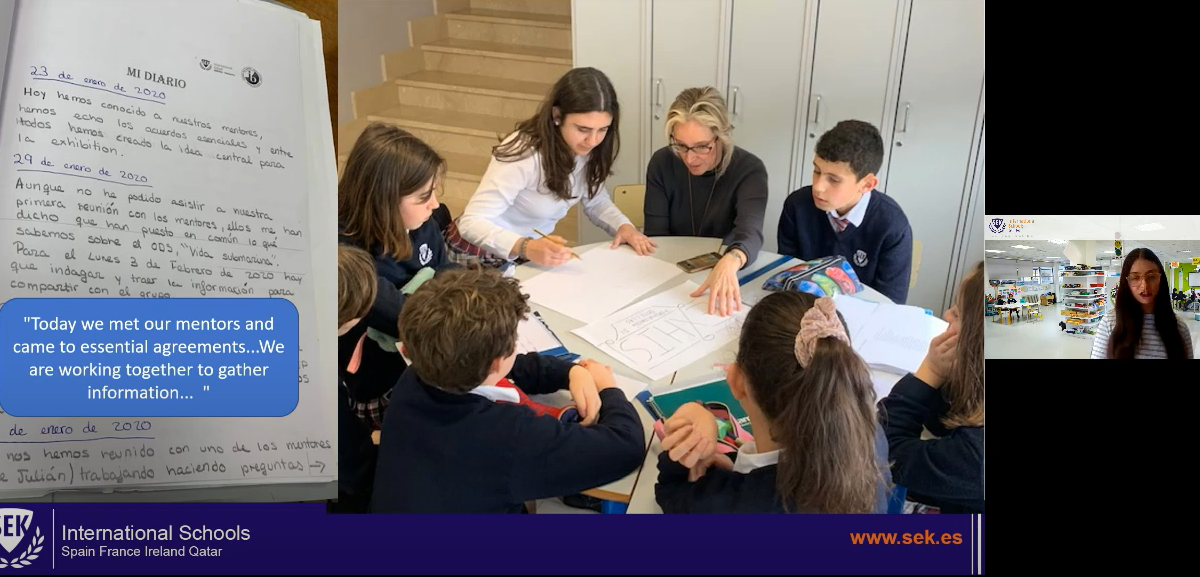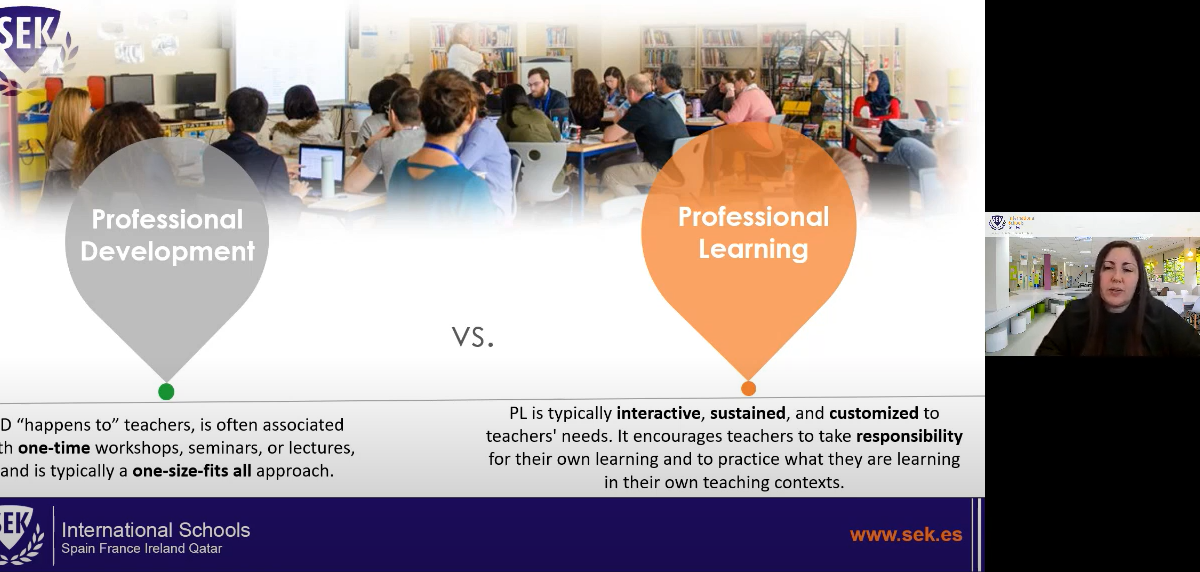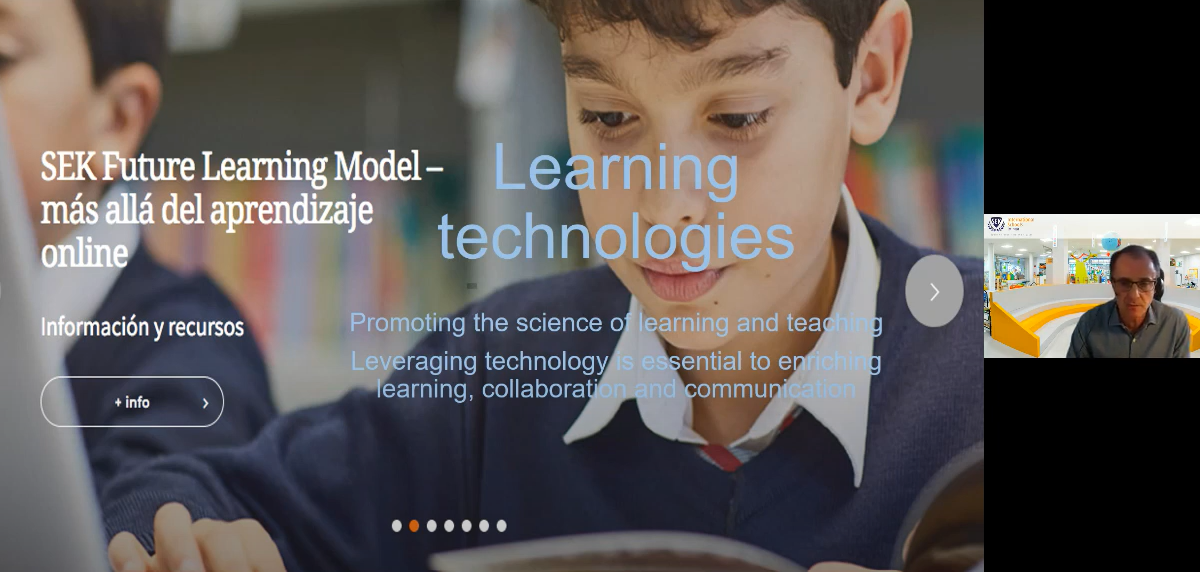SEK Education Group has taken part in World Education Week, an international event on education that was held, virtually, 5 to 9 October, with the participation of SEK-Qatar representing SEK Group.
SEK-Qatar, selected as one of the 100 schools that was represented at this event, gave several presentations including those by Verónica Sánchez – Head of School at SEK-Qatar, Daniela Kemeny – Deputy Director of SEK Schools, and Joaquín Rodríguez -Director of design, innovation and educational technology at SEK Group, with the shared theme of “Promoting the Science of Learning and Teaching”.
Agency, Co-creation & Self-directed Learning

Daniela Kemeny spoke on the benefits of giving students the ability to choose and direct their own learning. At SEK Education Group, as Kemeny stated, “we have implemented self-directed learning by students, where we aim for students to take the initiative, choose how they are going to learn, follow their interests, explore their talent and ambitions and set their own educational goals.”
Speaking about the role of students in shaping their learning, the Deputy Director of SEK International Schools said that “it is important to create an educational community in class, in which students are just as important as teachers when it comes to identifying what they know, what they can and what they want to do with their learning and actively participate in its design”.
The importance of implementing a Collaborative Planning & Professional Learning model for teachers

Verónica Sánchez, Head of School at SEK-Qatar, explained during her panel that, as part of the SEK International Schools educational model, both students and their teachers are responsible for learning and teaching. “All the members of SEK schools learn and lead learning at the same time, not just the teachers,” she asserted.
As Sánchez reported in her presentation, at SEK-Qatar, time for professional learning has been implemented since last year within the school calendar. Three days a week have been set aside for this, and each Thursday two hours are used for professional learning and collaborative planning.
As the Head of School at SEK-Qatar said, “learning occurs in optimal conditions as a result of the development of a community of learners who interact with each other, not as a group of people who simply attend classes, workshops or courses”.
The teaching model being used by SEK Education Group, in the words of Verónica Sánchez, “encourages teachers to be researchers, to work together and collaborate with each other to improve the quality of teaching. All the discoveries that result from these enquiries are shared with the rest of the teachers so that everyone can benefit from them”.
The importance of technologies to enrich learning, collaboration and communication

Joaquín Rodríguez, Director of Design, Innovation and Educational Technology at SEK Education Group, outlined in his presentation how “technology helps improve creativity, communication and collaboration.” As Rodríguez explained in his panel, five years ago, the SEK Group began to imagine how lessons would be in the future, and following a Design Thinking process, they designed four principles on which classrooms would be based in the coming years.
“The first principle is that any student can learn anywhere and at any time; the second, that any student should have access to the tools and content necessary for their learning; the third, that any student should have continuous contact with all their classmates to develop real collaborative work; and finally, that every student should have tools on which to reflect on their learning process and the results of it”, said Joaquín Rodríguez.
The role of technology in this process is key, as Rodríguez says, and that is why the SEK Group has created MySEK, a digital ecosystem with several personalised applications for all members of the educational community. “With the advent of the pandemic and lockdown, all the advances we had made proved extremely useful. We had provided our community, in advance, with an answer to a question that they had just asked us,” he says.
This ecosystem, as Rodríguez explains, currently contains tools for videoconferencing; for collaborative work; for educational challenges and projects that can be used by both students and teachers; immediate access to the physical and digital catalogue of school libraries; personalised access to textbook content; digital notebooks; and even a video platform with recorded classes and support webinars.
“We have to use educational technologies to improve analysis, critical thinking, collaboration and self-directed work. We must bear in mind that technology is, at the same time, a tool that facilitates and supports our work, but also helps us to generate new ideas to create and develop our educational process”, concluded Joaquín Rodríguez.
